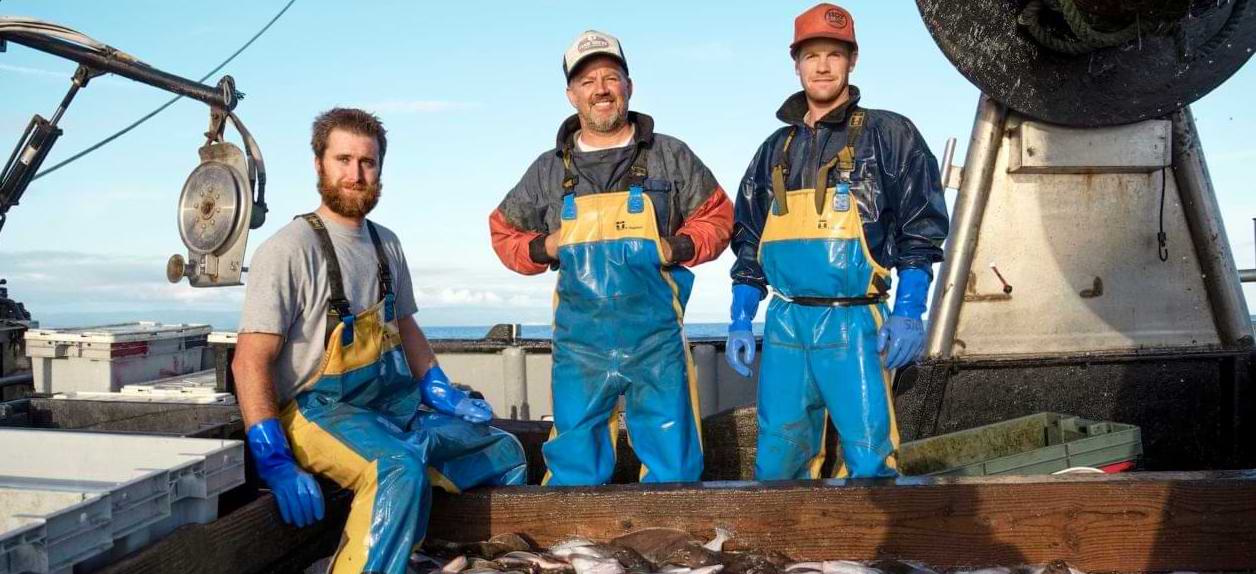
Some Regional Fisheries Management Organizations (RFMOs) have created official working groups dedicated to discussions about harvest strategies, simultaneously providing an opportunity for education and capacity building, as well as solicitation of input and feedback. In this way, the working groups help to steer the development process. These groups typically meet intersessionally, and often include scientists, managers, industry stakeholders, and NGO representatives. These science-management dialogue (SMD) groups are an essential part of harvest strategy development, helping to facilitate a conversation that is focused on laying out objectives, timelines, MSE workplans, and educational materials that move the process towards adoption.
Neither scientists nor managers can complete their harvest strategy development work without multiple rounds of feedback from one another, so it is critical that they can rely on an SMD to meet and discuss their progress throughout the development process. SMDs should work per a set of guidelines, called a terms of reference. The assigned meeting chair develops the terms of reference with feedback from members—well before the SMD’s first meeting—to lay out ground rules, objectives and tasks (see figure 1).
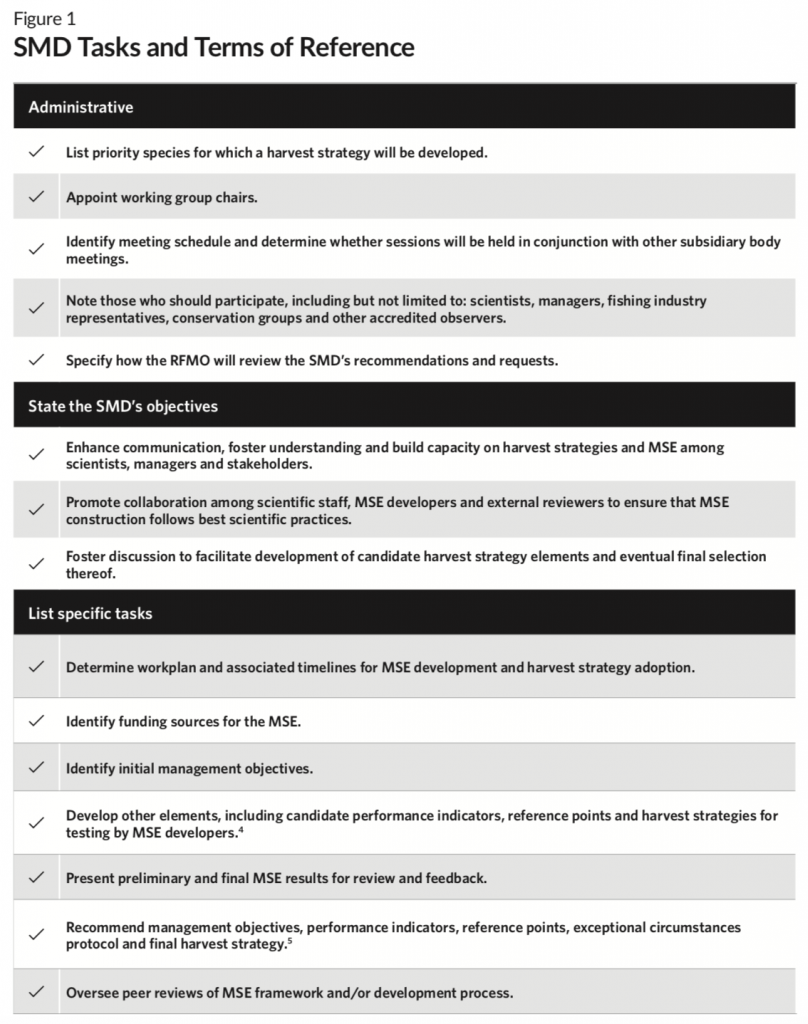
©️ 2022 The Pew Charitable Trusts
white box
Dialogue Groups by RFMO
CCSBT’s dialogue group established, and later, refined, a harvest strategy for Southern bluefin tuna. The following report documents the group’s recent meeting, which was dedicated to updating the harvest strategy.
The page for and the resolution establishing the TCMP can be viewed in the first two links below. The TCMP promotes capacity building and make recommendations to the Commission regarding stock-specific harvest strategies that are under development. The MSE task force is reserved for highly technical dialogue between MSE developers.
The IATTC established a formal science-management dialogue groups in 2024 after hosting several years of more informal MSE workshops. The so-called WGMSE is meant “to strengthen the dialogue among scientists, managers and other stakeholders on management strategy evaluation,” with a focus on the tropical tunas.
ICCAT’s SWGSM promotes capacity building and advances harvest strategy development across all stocks, and the report below outlines the progress made during the most recent meeting of the working group. ICCAT also uses various species-specific groups, called panels, to progress its intersessional harvest strategy work.
The NPFC established this SMD group in 2021 to develop an interim, short-term HCR for Pacific saucy and a long-term, MSE-tested harvest strategy in a bid to recover the stock from overfished levels.
NAFO’s dialogue group aims to advance harvest strategy work across all stocks, and both the report of the working group’s recent meeting and the terms of reference for the group are listed below. NAFO has also used dialogue groups successfully in the past, relying on the Working Group on Greenland Halibut Management Strategy Evaluation (WGMSE) to develop a harvest strategy for Greenland Halibut in less than a year.
This dialogue group discusses capacity building, progresses the work of specific harvest strategies, and develops pathways for decision-making. The group plans to meet in 2022 but has not been officially formalized by the Commission, leaving future meetings of the group possible, but not yet set in stone.
FACTSHEET: To Strengthen Fishery Management, RFMOs Should Use Science-Management Dialogue Groups; Language Options: Español 🇪🇸
We're co-hosting a regional fisheries workshop in Egypt this week, bringing together GFCM & ICCAT managers and scientists. The focus: harvest strategies and management strategy evaluation.
More on the workshop: https://tinyurl.com/3bu6ftx4
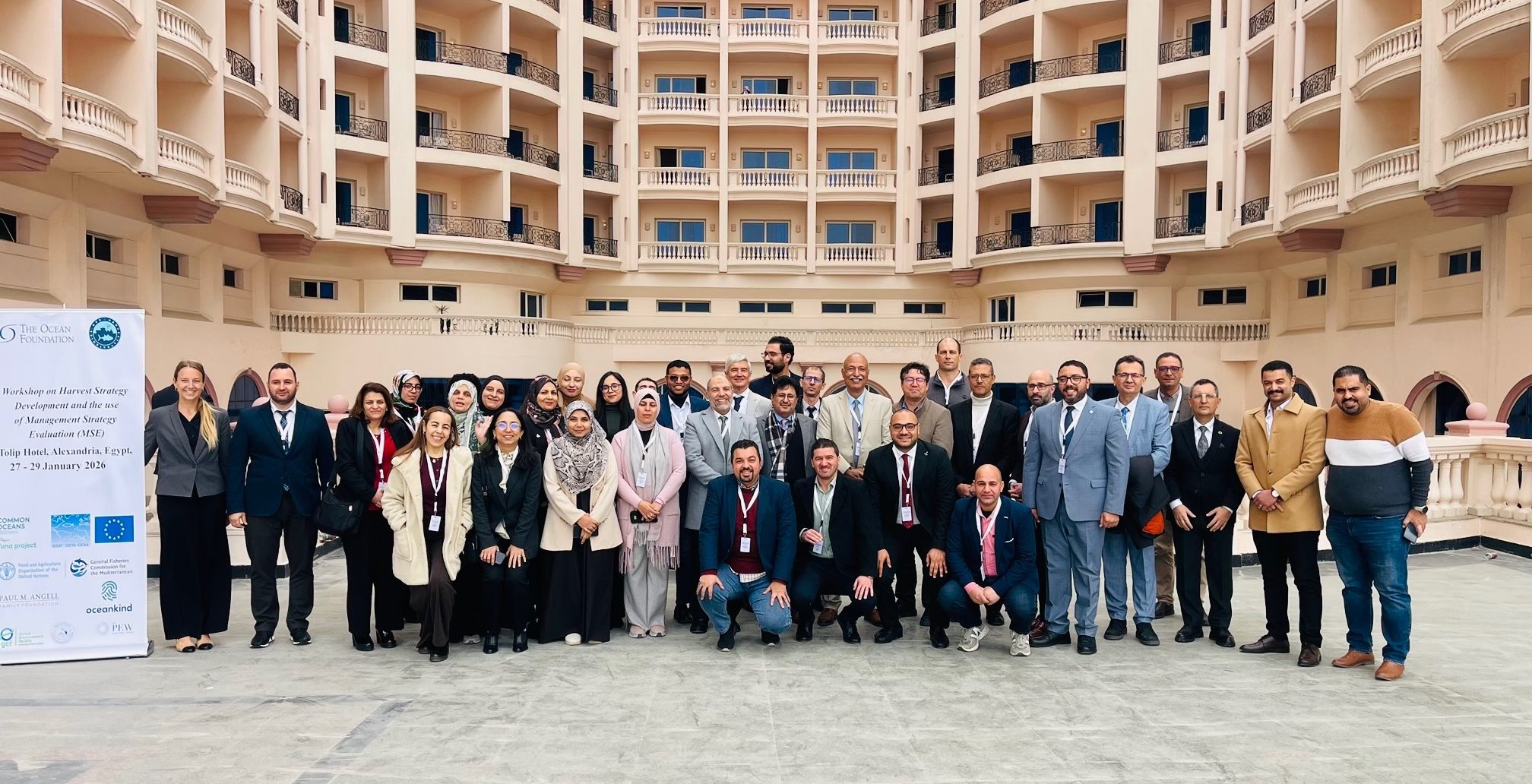
February 11, 2026
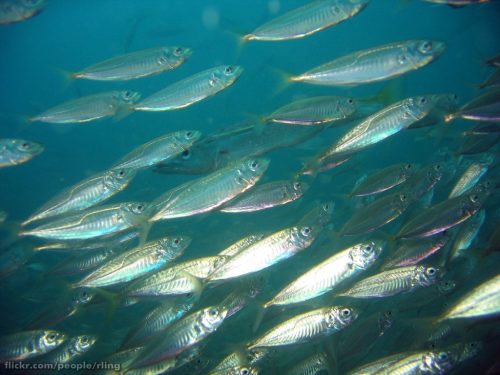
February 6, 2026
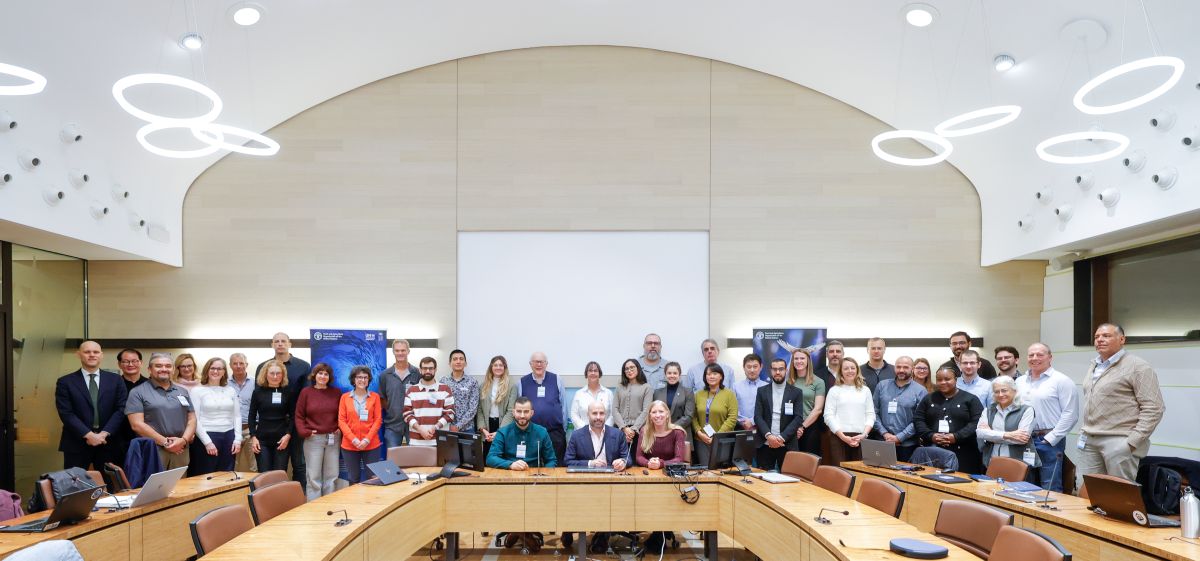
January 29, 2026
HarvestStrategies.org serves as a resource for fisheries scientists, managers, and other stakeholders, compiling information about how harvest strategies work and how implementing this pioneering management approach can lead to sustainable, profitable fisheries and successful recovery programs for many species around the world. The site is managed by The Ocean Foundation’s International Fisheries Conservation Project with support from The Pew Charitable Trusts and the Common Oceans Tuna Fisheries Project, which is funded by GEF and implemented by FAO.
| Status | Description |
|---|---|
| This item has been adopted | |
| This item is in development | |
| This item is behind / stalled | |
| This item has not been started yet |